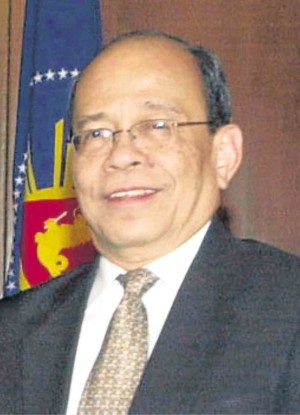Sandiganbayan acquits ex-UN envoy Baja of graft
The Sandiganbayan has dismissed the graft case against former Philippine Permanent Representative to the United Nations Lauro Baja Jr. in connection with reimbursements of allegedly fraudulent transactions worth US$28,934.96.
In a 35-page resolution dated March 20, the court’s Special Fourth Division granted Baja’s demurrer and ruled that the prosecution failed to provide sufficient evidence during the graft trial.
Prosecutors had accused Baja of obtaining reimbursements from 2003 to 2005 for “nonexistent or fictitious representation expenses, without proper documentation.”
The reimbursements were made on the payment of catering services during luncheons and receptions, as well as “traditional gifts.”
Auditors of the Commission on Audit observed that the checks issued did not show presentment to the banks; payments were only supported by temporary receipts; the purpose of the reimbursements was not stated in the request; and receipts submitted did not contain the name of the payee.
Article continues after this advertisementThe Department of Foreign Affairs fact-finding team likewise found that temporary receipts were attached to the reimbursement requests, the submitted checks were photocopies, and the handwriting was unrecognizable.
Article continues after this advertisementFor the antigraft court, however, the irregularities in the supporting documents would not be enough to sustain a graft conviction.
It said state prosecutors should have presented evidence showing that the payment of the services were “never negotiated or made.”
It added that the prosecutors did not even submit any statement from the caterers to corroborate the submitted evidence.
“This court gives it to the prosecution that there was, indeed, improper documentation of reimbursement of expenses,” the resolution penned by Justice Geraldine Faith A. Econg read.
“Unfortunately, it could not lead to a conclusion that these documents, even if improper, are evidence of nonexistent or fictitious transactions,” the court explained.
Justices Alex B. Quiroz and Reynaldo P. Cruz concurred with the resolution.
